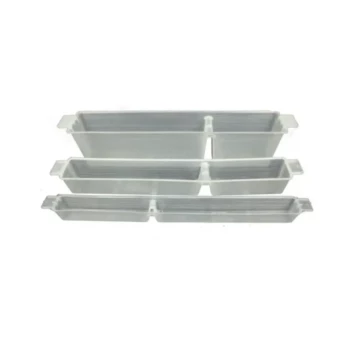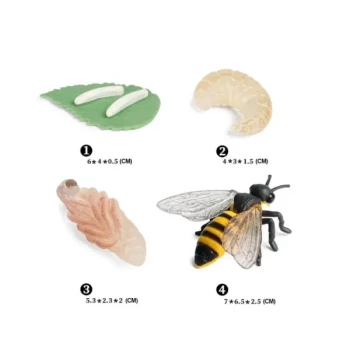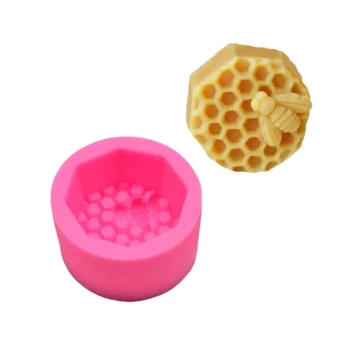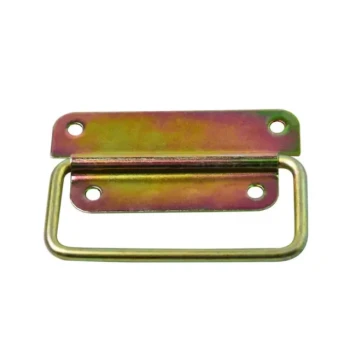In short, the future of bee nutrition is moving toward precision. As our understanding of honey bee dietary requirements deepens, the market will shift from basic pollen substitutes to scientifically-formulated supplements. These new products will be designed to more accurately meet the complex nutritional needs of a colony.
The core takeaway is that bee nutrition is evolving from a reactive, stop-gap measure into a proactive, science-driven strategy. The goal is to create high-quality pollen supplements that don't just provide crude protein, but deliver a complete and balanced diet to bolster colony health in challenging environments.
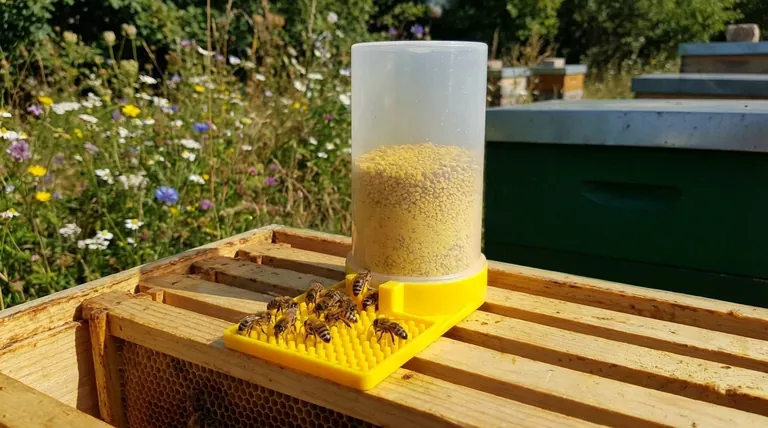
The Core Problem: Nutritional Stress on Modern Bees
To understand the future, we must first appreciate the present challenges that make supplemental feeding necessary. Bees are facing unprecedented nutritional stress, which is a key driver for innovation in this field.
The Challenge of Modern Landscapes
Modern agriculture and land development have created "nutritional deserts" for pollinators. Large-scale monoculture crops offer abundant food for a short period but result in a lack of diverse forage for the rest of the season.
This limited diet is like a human eating only potatoes for months. It provides calories but lacks the essential amino acids, vitamins, and minerals that come from a varied diet of different pollens.
Limitations of Current Supplements
Many traditional pollen "substitutes" are based on simple, protein-rich ingredients like soy or brewer's yeast. While they provide protein, they often fail to replicate the complex nutritional profile of natural, multi-floral pollen.
These substitutes can lack critical fatty acids, sterols, and micronutrients that are vital for brood rearing, immune function, and overall colony resilience.
The Future: A Shift Towards Scientific Formulation
The next generation of bee supplements will be built on a foundation of advanced nutritional science, moving far beyond simple protein content.
A Deeper Understanding of Bee Needs
The reference stating "as more is learned about bee nutrition" points to ongoing research. Scientists are precisely identifying the optimal ratios of amino acids, lipids, vitamins, and minerals that bees require at different stages of their life cycle.
This knowledge is the blueprint for creating truly effective supplements.
What "Better Quality" Really Means
A higher-quality supplement isn't just about more protein. It's about bioavailability and completeness.
The future is in formulations that provide a complete nutritional profile that mimics high-quality, diverse natural pollen. This includes ensuring the nutrients are easily digestible and palatable to the bees, maximizing consumption and absorption.
Understanding the Trade-offs
While the outlook is promising, it's critical to maintain an objective perspective. Supplements are a powerful tool, but they come with important considerations.
No True Substitute for Natural Forage
Even the most advanced supplement will likely never perfectly replicate the benefits of a diverse floral landscape. Natural forage provides a complex mix of compounds and phytochemicals that we are only beginning to understand.
Supplements should be seen as a crucial support system, not a replacement for healthy, diverse habitats.
The Beekeepers' Cost-Benefit Analysis
Advanced, scientifically-formulated diets will inevitably be more expensive than simple soy-based patties.
Beekeepers will need to weigh the increased cost against the potential return on investment, such as lower colony losses, increased honey production, and stronger colonies for pollination contracts.
Making the Right Choice for Your Goal
As these new products enter the market, your decision to use them should be driven by your specific objectives.
- If your primary focus is building colony populations for pollination: Advanced supplements can provide the targeted nutrition needed to rapidly and robustly grow a colony's workforce.
- If your primary focus is surviving seasonal forage gaps: A high-quality supplement can serve as a vital bridge, ensuring the colony has the resources to maintain its health when natural pollen is scarce.
- If your primary focus is long-term apiary resilience: Use supplements as one part of an integrated strategy that also includes providing access to diverse, pesticide-free forage.
Ultimately, the future of bee nutrition is about using targeted, science-based tools to help honey bees thrive in a world where their natural resources are under pressure.
Summary Table:
| Key Trend | What It Means for Beekeepers |
|---|---|
| From Basic to Precision | Supplements will move beyond simple protein to complete, balanced diets. |
| Science-Driven Formulations | Products based on specific amino acid, lipid, and micronutrient requirements. |
| Proactive Health Strategy | Using supplements to bolster colony resilience, not just as a stop-gap measure. |
| Cost vs. Benefit | Higher-quality supplements offer ROI through stronger colonies and lower losses. |
Equip your apiary for the future of bee health. The shift to precision nutrition means using the right tools to build stronger colonies. At HONESTBEE, we supply commercial apiaries and beekeeping equipment distributors with the high-quality supplements and feeding equipment needed to implement these advanced strategies. Strengthen your colonies and improve your bottom line—contact our experts today to discuss your wholesale needs.
Visual Guide
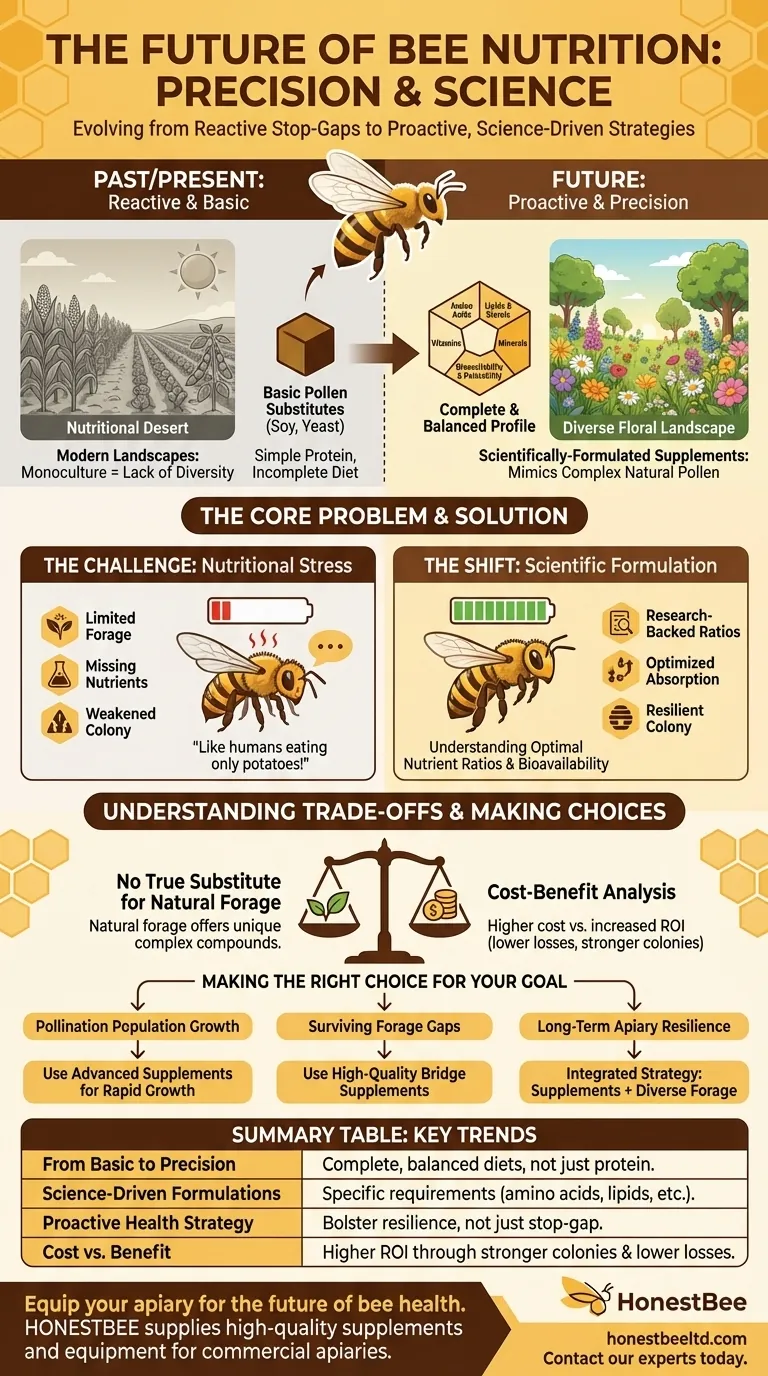
Related Products
- HONESTBEE Professional Entrance Bee Feeder Hive Nutrition Solution
- In-Hive Dual Compartment Frame Bee Feeder for Targeted Colony Nutrition
- Wooden Queen Bee Excluder for Beekeeping
- Metal Queen Bee Excluder for Beekeeping
- Professional Plastic Queen Excluder for Modern Beekeeping
People Also Ask
- What are the characteristics, advantages, and disadvantages of entrance feeders? Essential Guide for Modern Apiaries
- What measures should be taken to prevent robbing when using an internal hive top feeder? Pro Bee Defense Tips
- What are entrance feeders and what are their benefits? Enhance Your Apiary with Zero-Intrusion Hive Feeding
- What is a bee entrance feeder and what are its drawbacks? Essential Guide to Hive Security and Feeding Efficiency
- What is an entrance feeder and what are its characteristics? Essential Guide for Effortless Hive Feeding

